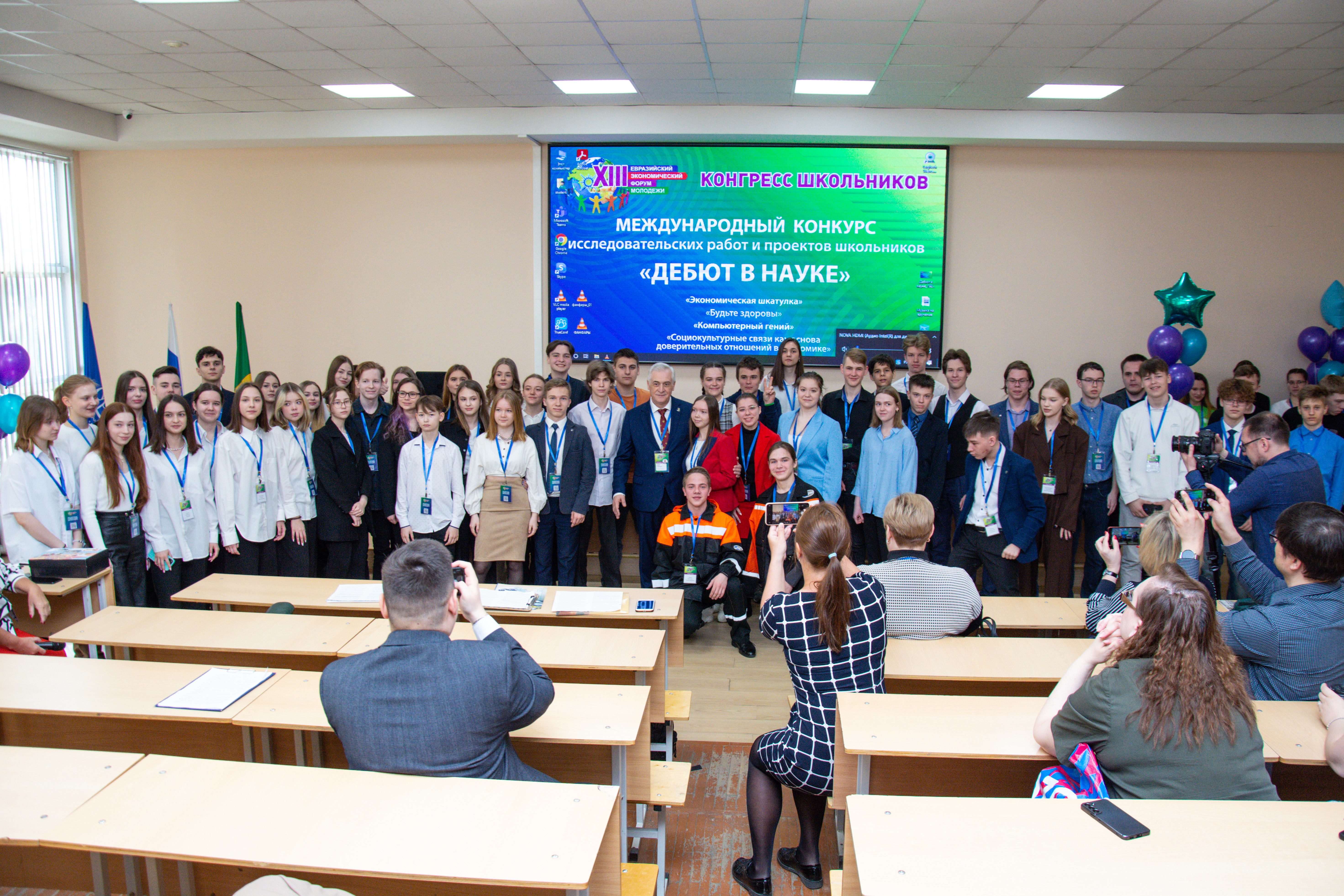Road to the heights
The Congress of Schoolchildren lasted two days. Today, the second stage of the international competition “Debut in Science” for schoolchildren in 8-11 grades took place.
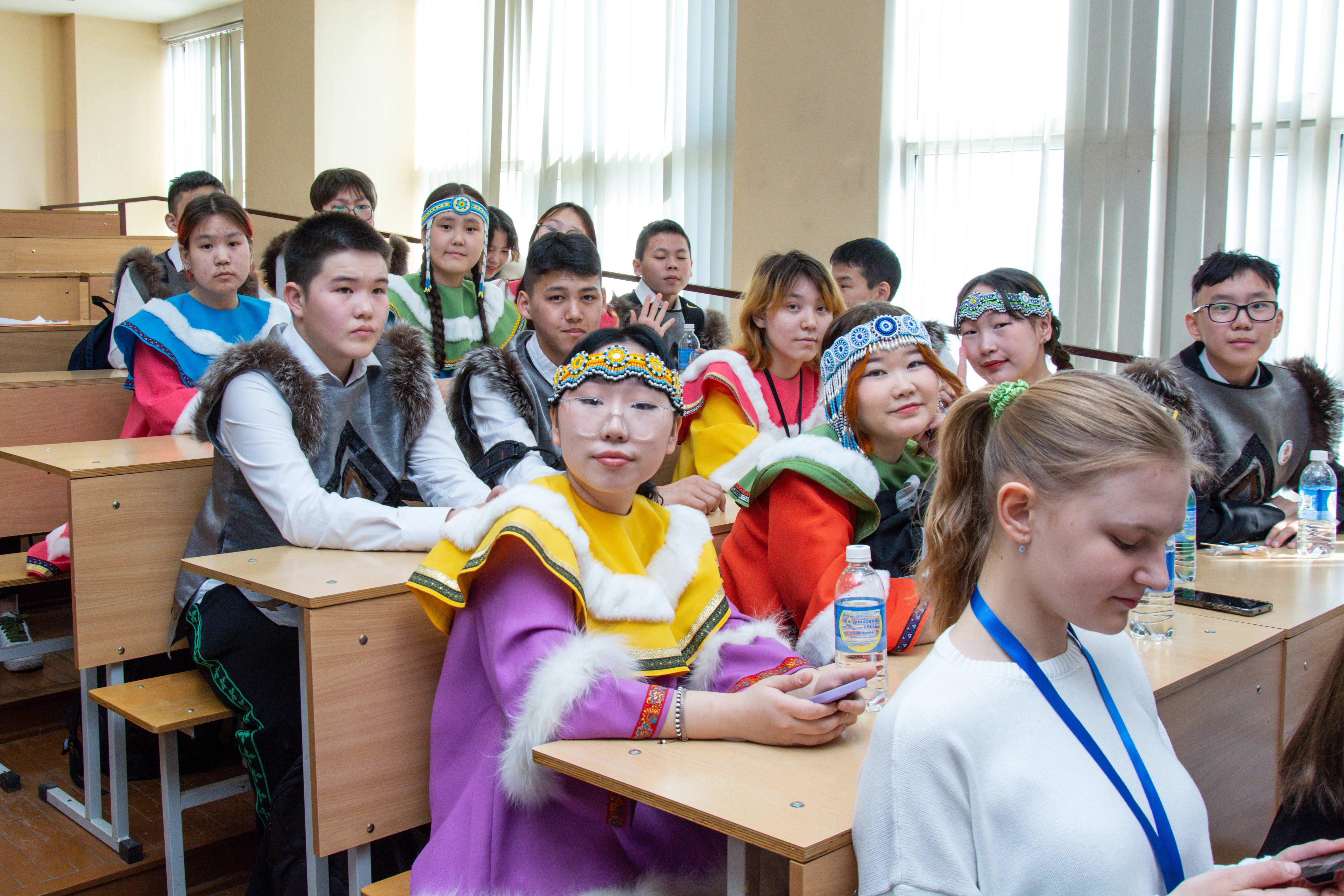
A physicist and popularizer of science Sergei Vavilov said: “When science reaches a peak, it opens up a vast prospect of a further way to new heights, new roads along which science will go further.”
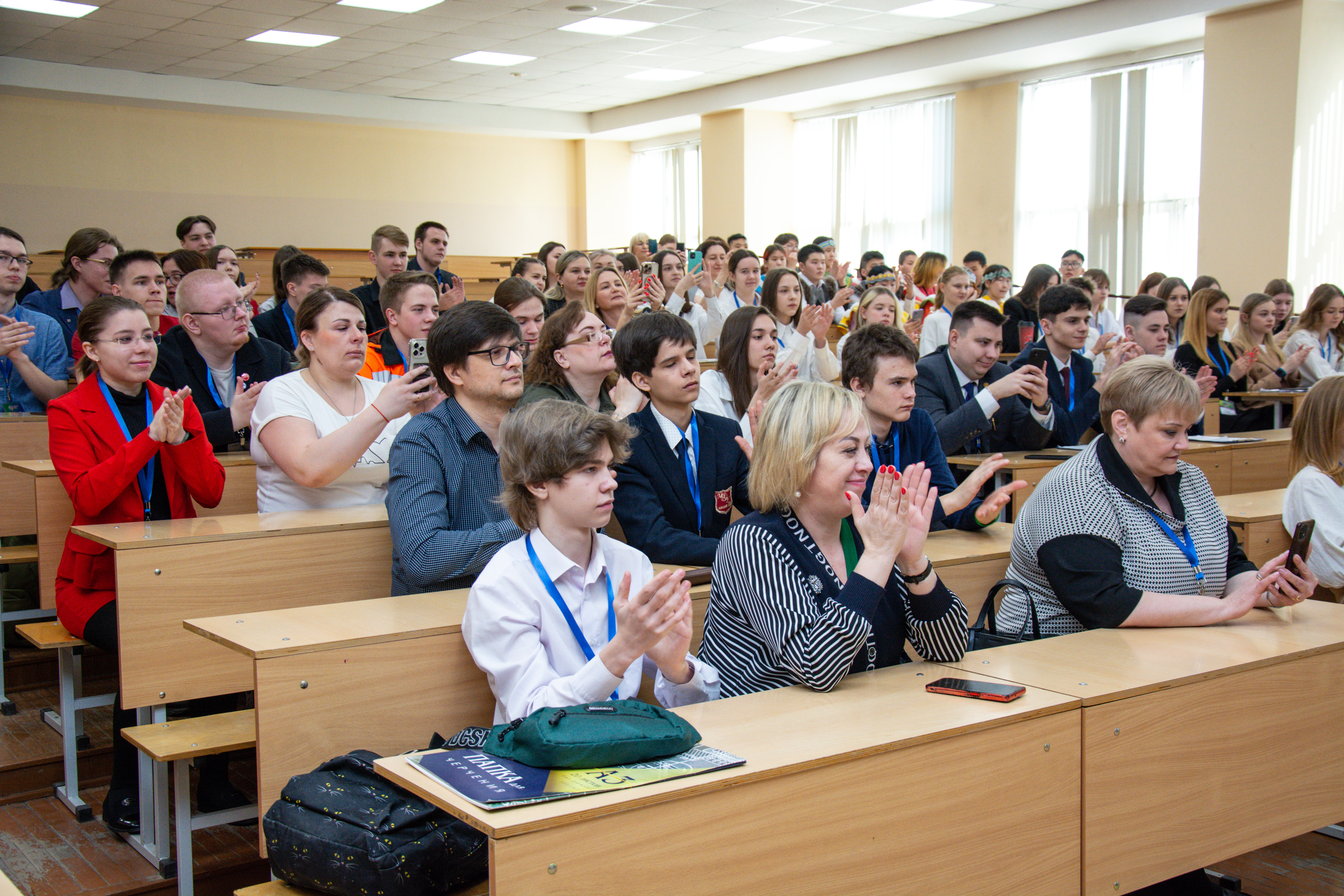
School students in 8-11 grades from Yekaterinburg, Sverdlovsk and Chelyabinsk regions, Udmurtia, Chuvashia, Dagestan, Kazakhstan, Kyrgyzstan, Crimea, St. Petersburg, Saransk, Yakutsk, Orenburg, Oryol, Tyumen, and other cities are engaged in the opening of new roads just today at the finals of the international research competition “Debut in Science” of the Congress of Schoolchildren.
As part of the XIII Eurasian Economic Youth Forum, “Debut in Science” is held for the eleventh time. According to tradition, USUE Rector Yakov Silin and Director of the Congress of Schoolchildren, head of the USUE Office for Admission and Pre-University Training Irina Martyanova offered some words of wisdom to the contestants. They wish children success and note that their works are of great practical importance. There are more and more young talents every year. The fact that 12,000 people from 107 states are taking part in the Eurasian Economic Youth Forum this year is direct evidence thereof.
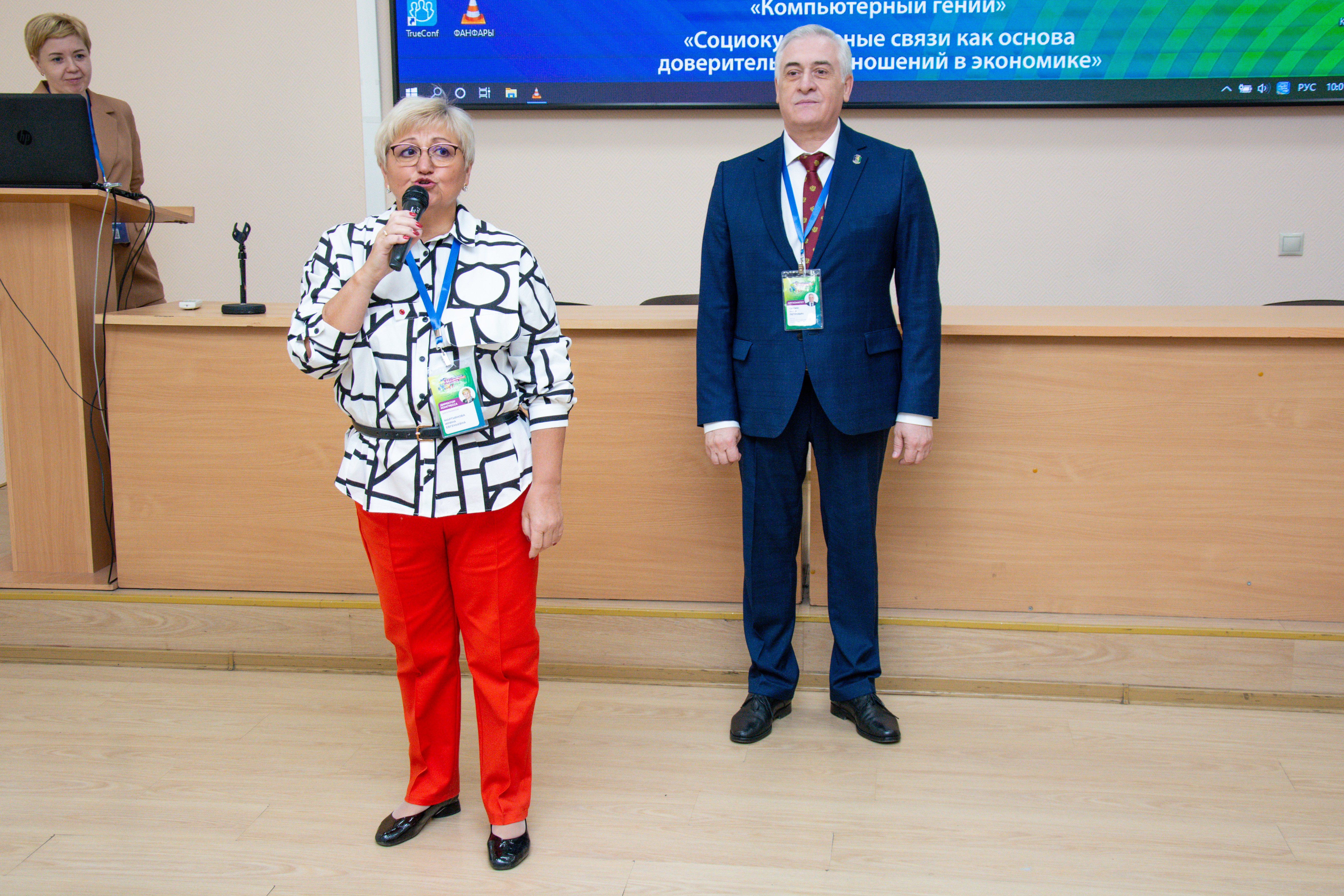
Fifty finalists presented projects in four areas: “Economic Box” - a study in the field of the national economy, “Computer Genius” - the study of information processes of any nature and the creation of new information processing technologies, “Be Healthy” - a study in the field of a healthy lifestyle, “Socio-cultural Ties as a Basis for Trusting Relationships in Economy” - a competition in English.
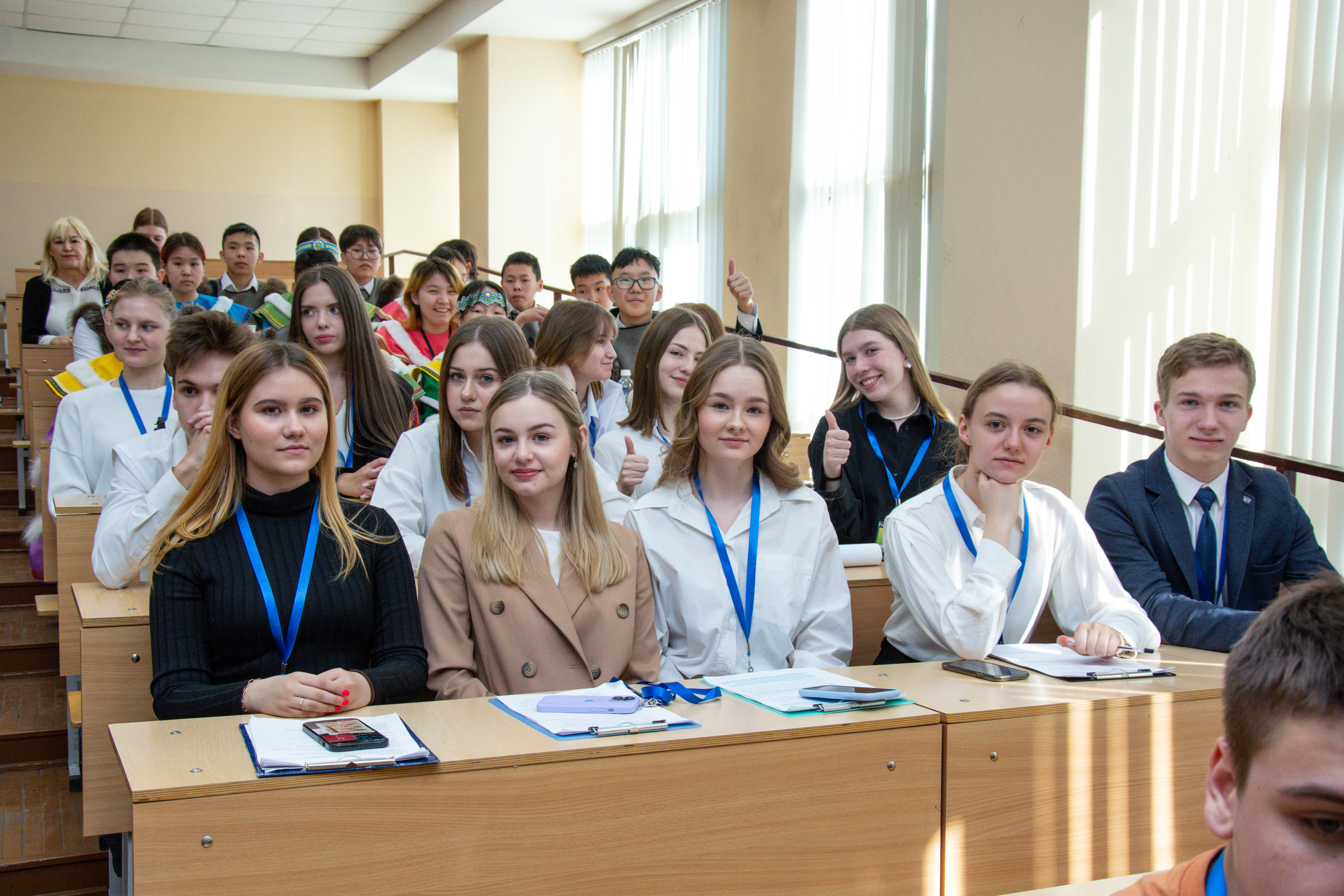
Applicants had five minutes to present and defend their projects, while experts and other participants asked questions, mainly about the practical application of the proposed work. Natalya Morozova from Yekaterinburg Lyceum No. 110 (grade 10) presented a project on economics “Opportunities of the stock market as an alternative to bank deposits.” She set herself the task of “telling high school students about ways to invest money and earn income in ways other than a bank deposit.”
“In my opinion, I did it! They received it warmly. At the “Economic Box,” there were many talented guys, interesting projects, and the jury gives important recommendations. I was given a valuable advice on the development of my project. I liked the atmosphere of the holiday, the decoration at the university, joyful peers,” Natalya shared.
Dmitry Ostrovsky and Matvey Kozlov came to the finals from St. Petersburg: “One of our friends created a school financial club, and we decided to dilute the lectures with something entertaining and came up with an educational game “Financecus,” aimed at increasing financial literacy in an interactive communication. What impressed me the most at the forum was the number of guests and the excellent organization, many volunteers who help in everything. We are pleased to participate in such large-scale events at a high level.”
The experts did not stand aside and shared their impressions.
Elena Makarova, head of the USUE Department of Business Foreign Languages, director of the competition “Socio-cultural Ties as the Basis for Trusting Relationships in Economy (in English)”: “The idea is to combine the economic analysis that children carry out with their knowledge of a foreign language. We evaluate not only the theme of the project but also oratory, the ability to present an idea. The ability to communicate in English is important. We are very pleased with the result. It is interesting that the contestants broached the subject of cooperation with China, Iran, and CIS countries. I would like to note the socially significant project “That SAME Oil” by Vyacheslav Sharov and Nikita Dorofeev from Surgut, aimed at preserving historical memory.”
Tatyana Markova, coordinator of the contest “Socio-cultural Ties as the Basis for Trusting Relationships in Economy (in English)”, considers interesting the work of Evdokia Zhilina from Yekaterinburg gymnasium No. 13 “Economic relations and transport links between Russia and Iran, considering recent geopolitical relations.” Her project has a strong research component. She analyzed the possibility of new transport corridors and even created a Yandex map and made a comparative table for these routes. “Ilona Kazantseva has a wonderful project dedicated to the study of the energy resources of the Arctic with a convincing analysis. Another leader is Kristina Efimova with a project to establish an educational children’s center for career guidance in the Sverdlovsk region. Many projects presented are aimed at gaining skills, knowledge and understanding of where young people could work in the future,” the coordinator said.
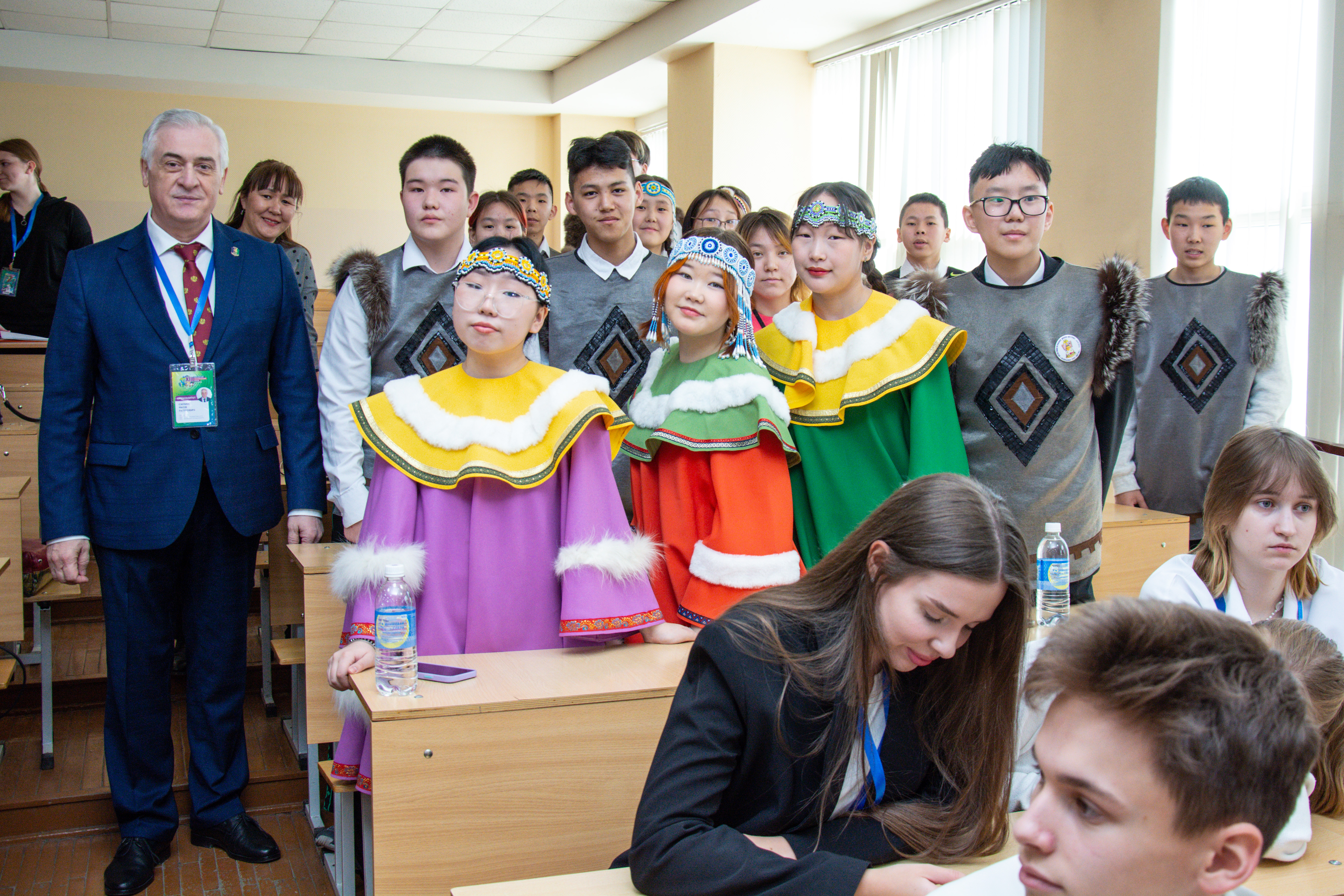
An expert of the competition, Natalya Zolotareva, Ph.D. in Philology, said: “I would like to note the wonderful knowledge of the English language of all participants in the competition, and not only children from special schools but also from comprehensive schools.”
A competition expert Maria Nikiforova: “This year we have reached a new level: high-level works are presented, there is a confident research component, good analytics, everything is clearly structured, presentations are thought out. Progress is seen and there is confidence that there are still a lot of interesting things ahead.”
The winners and nominees of the competition in each area were announced at the awards ceremony. All those who took part in the defense received certificates of laureates of the XIII EEYF, which will grant extra points when entering USUE. The supervisors of research projects received letters of thanks.
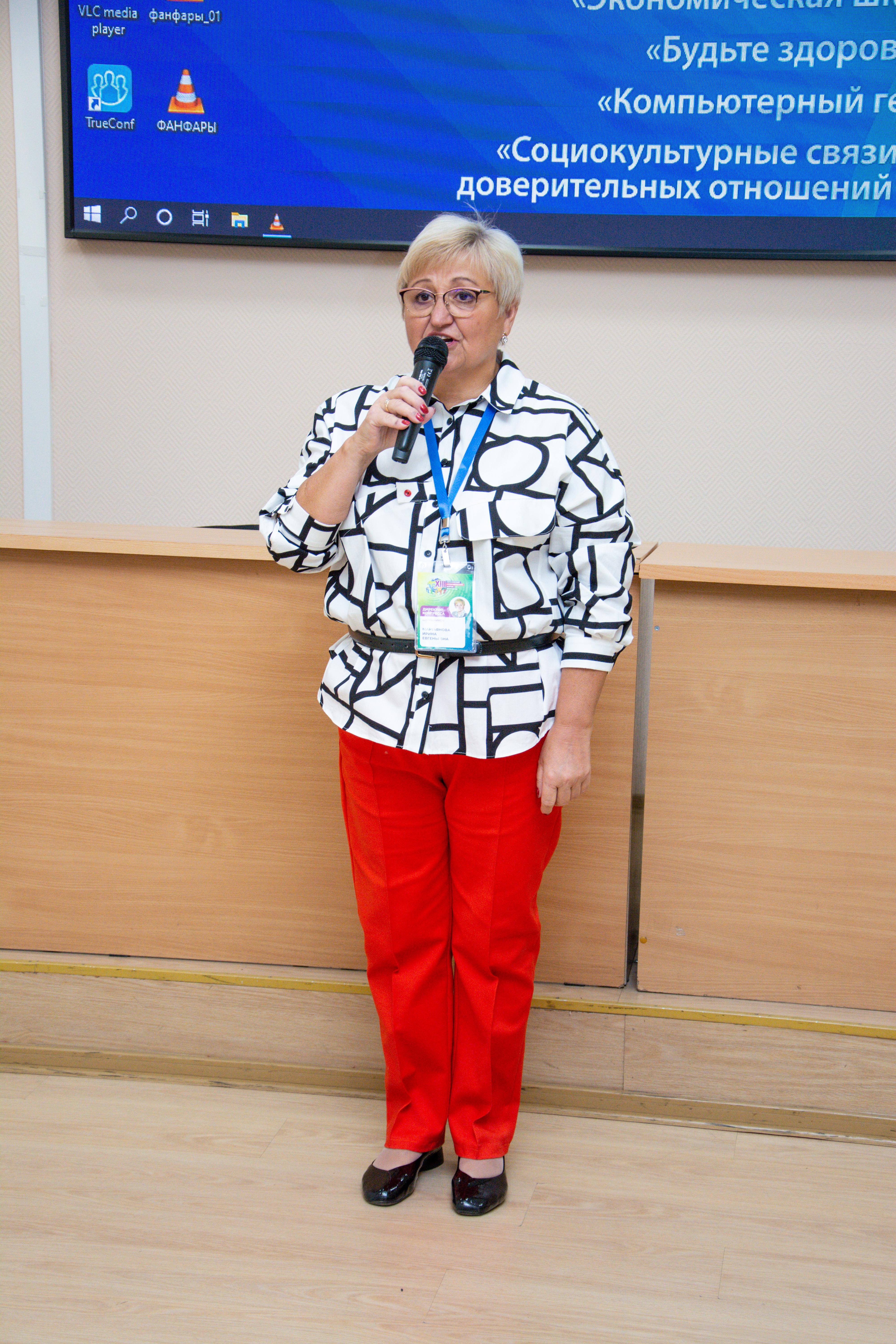
At the award ceremony, the director of the Congress of Schoolchildren, Irina Martyanova, noted: “All the experts are amazed at the number of works that can be offered for practical use, can be considered as course projects and degree theses, and can be sent to international competitions. Therefore, we have a lot of nominations and diplomas, although initially, the traditional set for each area was planned.”
